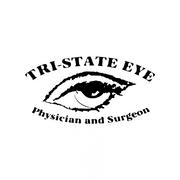
Glaucoma is an extremely common eye disease that is the leading cause of blindness among people over 60. This disease can damage the optic nerve and lead to vision loss or blindness. Fortunately, many of these effects can be prevented if the condition is caught in its early stages. Below is a guide to glaucoma and how you can protect your eyes.
FAQ About Glaucoma
What is glaucoma?
Glaucoma results when fluid builds up inside the eyes, potentially damaging nerves and impairing a person’s vision. Because it progresses slowly and painlessly, glaucoma is often referred to as the "silent thief of sight." People with glaucoma often don't notice any symptoms until significant damage has already been done.
There are several types of glaucoma, the two most common of which are primary open-angle glaucoma and angle-closure glaucoma. Primary open-angle glaucoma occurs when the drain in the eye that allows fluid to flow out becomes clogged. This eventually results in increased pressure in the eye and excess pressure on the nerve. Angle-closure glaucoma occurs when the drainage channel inside the eye becomes too narrow. This condition progresses more quickly, so it’s often called acute glaucoma.
What are the risk factors for glaucoma?

Age is one of the most significant risk factors for glaucoma, which often affects people over 60. Family history, high blood pressure, and certain medical conditions such as diabetes. People who have experienced eye injuries in the past are also more likely to develop this condition.
Can glaucoma be treated?
There is no cure for glaucoma, but early detection and treatment can help slow or prevent further vision loss. If your doctor detects glaucoma, they may prescribe a variety of treatment options. Prescription eye drops or oral medications may be effective, or your doctor may recommend laser therapy or surgery. The type of treatment recommended will depend on the type of glaucoma and the severity of the disease.
How can you protect your eyes?
Regular eye exams are essential for detecting glaucoma in its early stages, especially as you get older. Controlling your blood pressure, exercising regularly, and eating a healthy diet will help minimize your risk of glaucoma.
Smoking has also been linked to a higher risk of eye disease. If you smoke, quitting now can help improve your eye health and reduce the chances of developing other serious diseases.
With state-of-the-art technology and a staff of caring, trained professionals, Tri-State Eye is committed to providing the best possible care to their patients. They pride themselves on their ability to diagnose and treat a wide range of eye issues, including glaucoma, preserving your vision for as long as possible. Visit their website for more on their services, or call (845) 703-2020 to reach their office in Middletown, NY. To schedule an appointment at their office in Milford, PA, call (570) 296-9696.
About the Business
Have a question? Ask the experts!
Send your question

